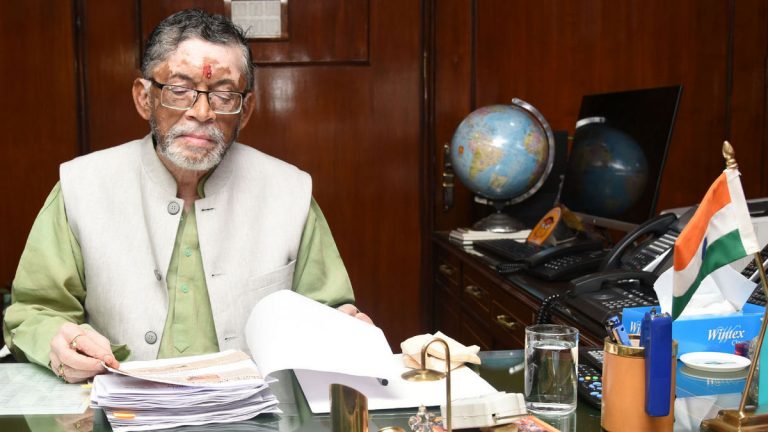![]()
Union Labour Minister Santosh Kumar Gangwar has said that state government amendments to labour laws would not be approved by the central government “in their current form”.
Emphasising that a balance would be created between workers’ rights and business’ demands, the Minister of State (MoS) for Labour and Employment – Independent Charge (IC) told The Economic Times that “complete suspension of labour rights are not labour reforms”.
Ten states, including BJP-ruled ones, passed the amendments via ordinances. Terming the situation as “unprecedented”, Gangwar said notifications increasing work hours and lifting provisions of Factory Act and the Industrial Dispute Act were carried out under existing statutes granting powers to state governments and did not require the Centre’s permission.
He added: “Such notifications have been done in light of the urgent situation … seem to be temporary arrangements for immediate respite … and are not long term labour reforms … suspension of labour rights is not labour reforms … the country can progress only if the rights of the workers are protected.”
Speaking on the proposed labour strategy for attracting foreign investors exiting China on the back of the COVID-19 crisis, Gangwar said that a balance would have to be made between labour and industry.
“We need to provide an amicable environment where a balance is created between the rights of workers and the demands for doing business … wage security, safety and social security for workers and simple, transparent compliance mechanism to the industry so that it is a win-win …” he said.
On the measures being taken to rectify labour shortage brought on by the coronavirus lockdown, Gangwar said the government was considering an electronic database of all the migrant workers and their skill set so that they could be approached with opportunities directly.
“This component can be part of our National Career Service Project and this database may be developed in coordination with various state governments,” he added.
Enumerating the measures already undertaken he said that after exhaustive consultations with all stakeholders the Centre has amalgamated all existing central labour laws into four labour codes—Wage Code, Industrial Relations Code and Occupational Safety, Health and Working Conditions Code.
Of these, the wage code has already been passed in Parliament, while the other three are referred to the parliamentary standing committee (PSC) which is examining the recommendations.
“Modifications have also been deliberated like strengthening the legal provisions with respect to migrant workers and enhancing the ambit of social security for the workers,” he added. Gangwar noted that current laws cater only to the 8-10 crore organised sector workers only, adding: “this asymmetrical situation has to be rectified … need to focus on the 40 crore unorganised workers.”
He also acknowledged the medium, small and micro industries sector (MSME) has increasingly seen cases of non-payment of wages for which the Atmanirbhar Bharat package announced by Finance Minister Nirmala Sitharaman has already made provisions. “Other measures may also be considered as and when required in the changing scenario,” he added.
We are providing practical training (Labor Laws, Payroll, Salary Structure, PF-ESI Challan) and Labor Law, Payroll Consultant Service & more:
- HR-Generalist-Practical-Training: https://oneclik.in/hr-generalist-practical-training/ (PF, ESI, Bonus, Payroll & more)
- Labour-Law-Practical-Training: https://oneclik.in/labour-law-practical-training/ (Factory, Contact Labor, Maternity Act & more)
- PF – ESI Consultant Service: https://oneclik.in/pf-esi-consultant-service/
- Labor Law, Compliance & HR – Payroll Management
To Get Latest HR, IR, Labor Law Updates, Case Studies & Regular Updates: (Join us on Social Media)
- Telegram Channel: “One Clik”
- Whatsapp Group: https://wa.me/919033016939
- Facebook: One Clik
- Linkedin: One Clik
- Instagram: oneclik_hr_management

